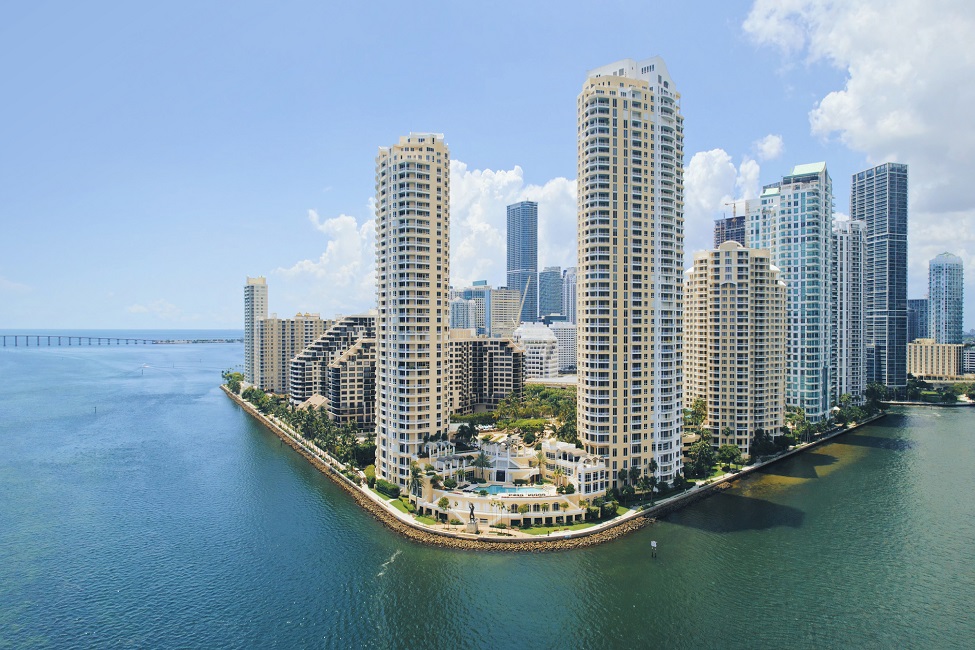FAU Economist: Short-term Rentals, HOA Rules Drive Up Florida Rents

A Florida Atlantic University researcher believes an abundance of short-term vacation rentals and oppressive restrictions from homeowner and condominium associations are contributing to Florida’s rental crisis.
Short-term rentals, such as those listed on Airbnb and similar websites, keep units out of an already-depleted housing stock, according to Ken H. Johnson, Ph.D., an economist in FAU’s College of Business. Meanwhile, many HOAs across the state limit owners from renting their units during the first year or ban renting altogether.
“Both of these take away units that could be rented to the public, and it’s the shortage of available units that drives rental rates higher,” Johnson said. “While developers and local governments clearly need to build more units, that’s not the only solution to this problem.”
Rising rents are easing in much of the country, but Florida is still home to nine of the 21 most overpriced markets in the U.S., according to the latest figures from the Waller, Weeks and Johnson Rental Index. The monthly report shows the premiums current renters are paying based on a history of rents back to 2014.
For instance, Cape Coral-Fort Myers renters lead the nation in paying 18.05 percent above the long-term leasing trend. Miami; North Port; Tampa; Orlando; Deltona-Daytona Beach; Palm Bay-Melbourne; Jacksonville; and Lakeland also have some of the nation’s highest premiums.
The average rental premium paid in the U.S. is 7.40 percent.
“As a state, we need to realize that the current rental crisis is hurting our economic growth potential and making it increasingly difficult for service workers to live within reasonable distances of their jobs,” Johnson said.
Given steep rental increases in the past two years, owners of short-term rentals may find greater returns in converting their properties to long-term rentals, according to Johnson. He added that HOA boards choosing to relax or eliminate rental restrictions will increase property values for their residents.
“In both cases, there are incentives for owners and HOA boards to change what they’re doing, and at the same time, they would be helping to ease the rental problem in Florida,” Johnson said. “Markets will work in time, and we will slowly build enough units to ease this crisis. But there also can be relief in the interim.”
-FAU-
Latest Research
- FAU Historian Traces How U.S. Nursing Homes Evolved into Big BusinessA historian explores how the Americana Corporation shaped modern nursing homes, revealing how architecture tied aging, care and profit into a system that still defines long-term care in the U.S. today.
- Where a Child Lives - Not Just Diet - Raises Type 2 Diabetes RiskFAU researchers found poor walkability, litter, and reliance on assistance programs are strongly linked to type 2 diabetes risk in young children, based on a large nationwide study.
- FAU BEPI: Economic Strain Hits Hispanic Households Hard in 3rd QuarterHispanic consumer confidence dropped in the third quarter of the year as uncertainty and increased prices placed added pressure on their budgets, according to a poll from Florida Atlantic University's BEPI.
- FAU's Queen Conch Lab Receives Prestigious International AwardFAU Harbor Branch researchers have received the 2025 Responsible Seafood Innovation Award in Aquaculture from the Global Seafood Alliance for its Queen Conch Lab's pioneering work in sustainable aquaculture.
- After Cancer: Study Explores Caring-Healing Modalities for SurvivorsResearch from FAU's Christine E. Lynn College of Nursing highlights how caring-healing methods like mindfulness can ease distress and build resilience in cancer survivors.
- FAU Researchers 'Zoom' in for an Ultra-Magnified Peek at Shark SkinWhat gives shark skin its toughness and sleek glide? Tiny, tooth-like denticles. Researchers used electron microscopy to reveal how these structures shift with age, sex, and function in bonnethead sharks.






